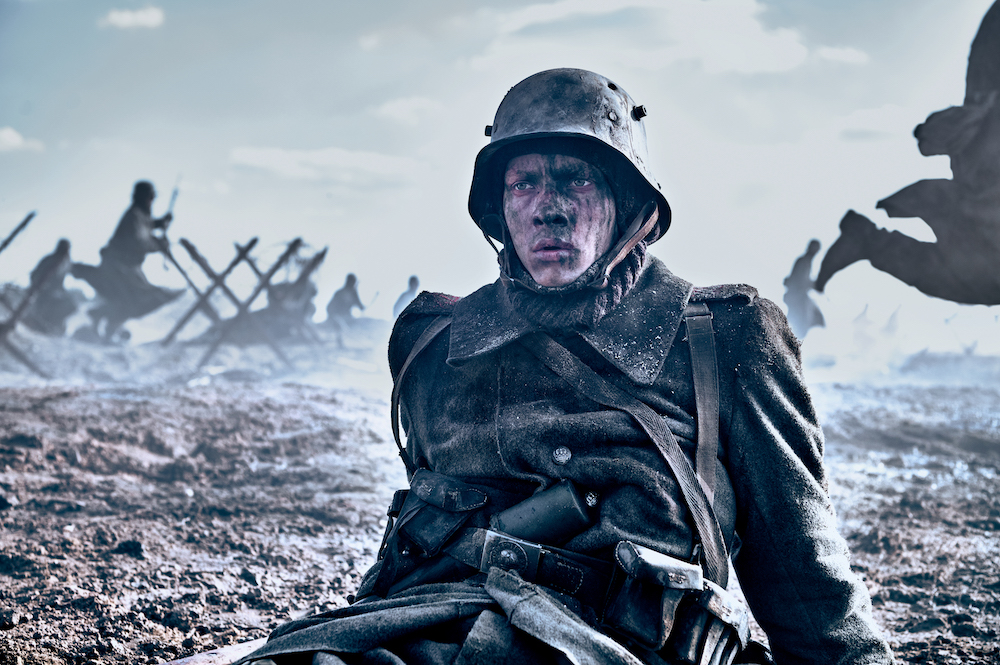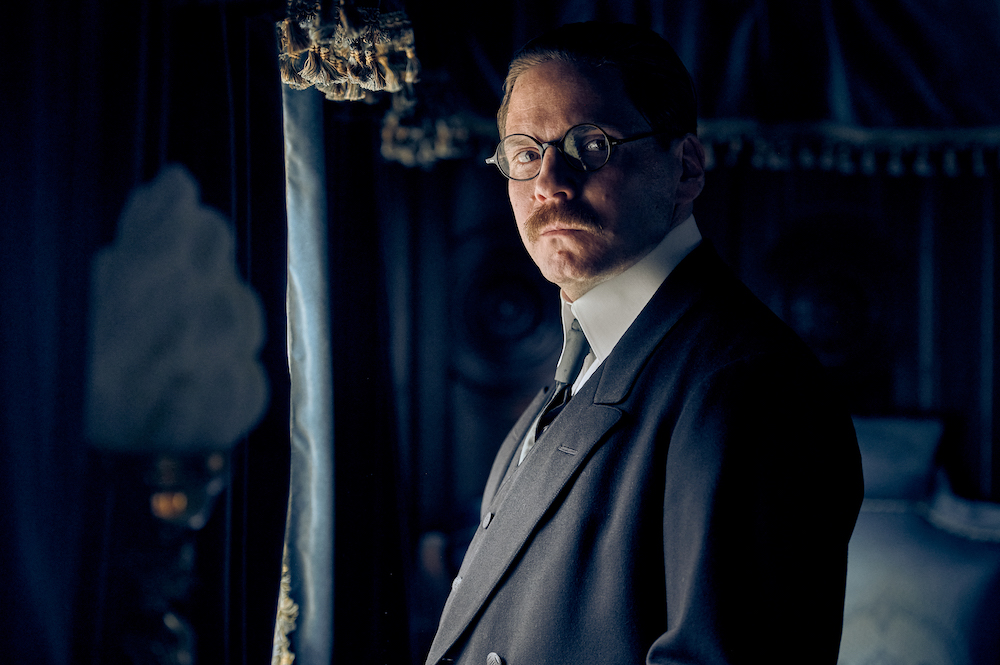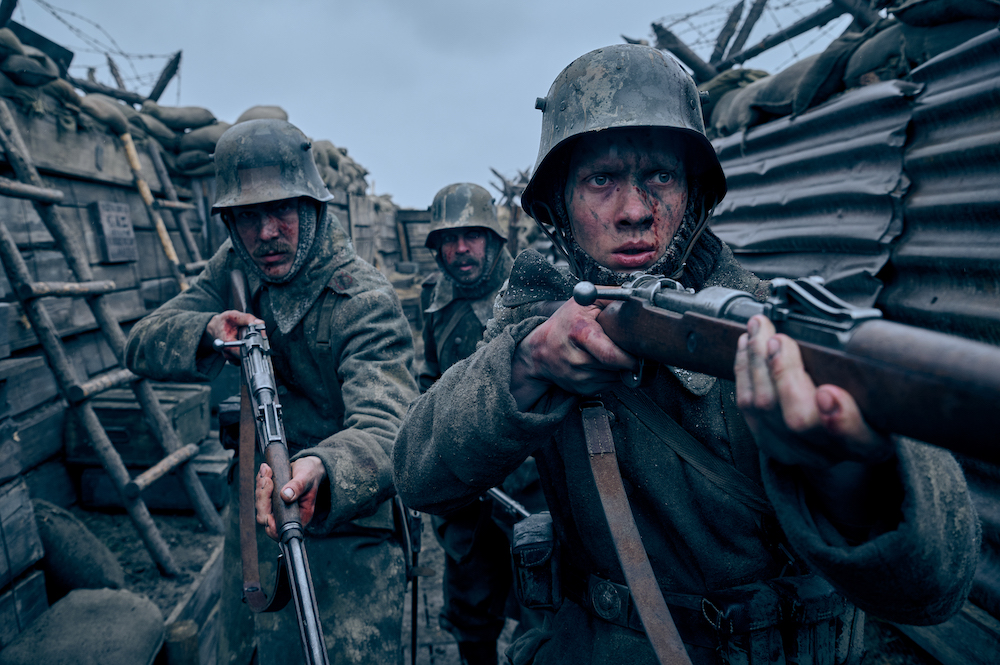Netflix’s ‘All Quiet on the Western Front’ is a 2022 war drama that follows the story of a young German soldier named Paul Baumer. He joins the army with the enthusiasm of a patriot who can’t wait to fight for his country. However, Paul becomes disenchanted with the heroism that inspired him to jump into the war as he starts to witness the gruesome and unforgiving side of it.
Directed by Edward Berger, the events in the film take place on the Western Front in France, set during the First World War. As often happens, war movies derive inspiration from real-life people and events. If you are wondering whether Paul Baumer’s story is based on an actual person’s, then here’s what you should know about the film.
All Quiet on the Western Front: Remarque’s Wartime Experiences
Yes, ‘All Quiet on the Western Front’ is loosely based on true stories. The movie is based on the novel of the same name by Erich Maria Remarque. Published in 1929, it is hailed as one of the best in its genre and is also among the books that have been banned several times worldwide. Remarque followed his novel up with ‘The Road Back’ and ‘Three Comrades.’ ‘All Quiet on the Western Front’ has been previously adapted as the 1930 Academy Award-winning film by Lewis Milestone and the 1979 TV film by Delbert Mann, but this is the first time it has been made in its native language.

Remarque is said to have based the events in his book on his own experiences. At eighteen, he joined the army and served in the First World War. Much like his character Paul, he was enthusiastic about fighting in the war, which soon took a toll on him. Following the war, he found it difficult to return to his previous life. He was disillusioned as well as traumatized by his experience in the trenches. When he felt that other soldiers were also going through a similar phase, he started writing a book about their experiences and how it felt to fight in the war.
Because the details of Paul’s service are unknown, it is difficult to confirm how much of his own experiences he wrote about in the novel, but it is fair to say that it certainly informed his writing. The characters and arc depicted in the book are fictional, even though they are set in the authentic backdrop of World War I. In adapting it for Netflix, several changes were made to the narrative. Remarque’s novel is told from the perspective of Paul, and we follow only him throughout the story, most of which takes place in the trenches. The film, however, explores another plot line, as it follows Matthias Erzberger trying to end the war by negotiating a peace treaty with the French.
In a train near Compiègne, we follow Erzberger for the days in which the French present their terms and the Germans, who recognize that they have been losing, sign the agreement that leads to the Armistice of November 11, 1918, bringing the war to an end. Because the conversations that happened there were never recorded, writer-director Edward Berger revealed that protocols from historical references informed those scenes.

Another detail that the movie changes from the book are that it gives a proper location to the war. The book never mentions the names of the battles depicted in it or when they occur. This gives a sense of timelessness to the story and focuses more on the experience of the soldiers rather than chalking out details about a particular historical event. In the film, Paul joins the 78th Reserve Infantry Regiment. In real life, the German army had the 78th Reserve Division, which fought battles on the Eastern Front, like the Second Battle of the Masurian Lakes, and was part of the Gorlice-Tarnów Offensive.
In 1917, the division was transferred to the Western Front, where it remained till the end of the war. The events in the Netflix film also take place in the same timeline. Several other changes have been made in the film regarding the fate of the characters and the manner of their death. Several plot points and timelines have also been shifted, but at its core, the movie stays true to the heart and soul of Remarque’s book.
In making this film, Berger wanted to present the German perspective of the war while also ensuring that the events were presented realistically rather than glorifying aspects. “For us, it has a lot to do with shame, with feelings of guilt and pain. This is precisely what we wanted to convey,” the director told The Guardian. Considering all this, it is fair to say that while ‘All Quiet on the Western Front’ might be fictional and many elements are made up, Remarque’s personal experience and Berger’s research keep it very close to reality.
Read More: Best World War 1 Movies


You must be logged in to post a comment.